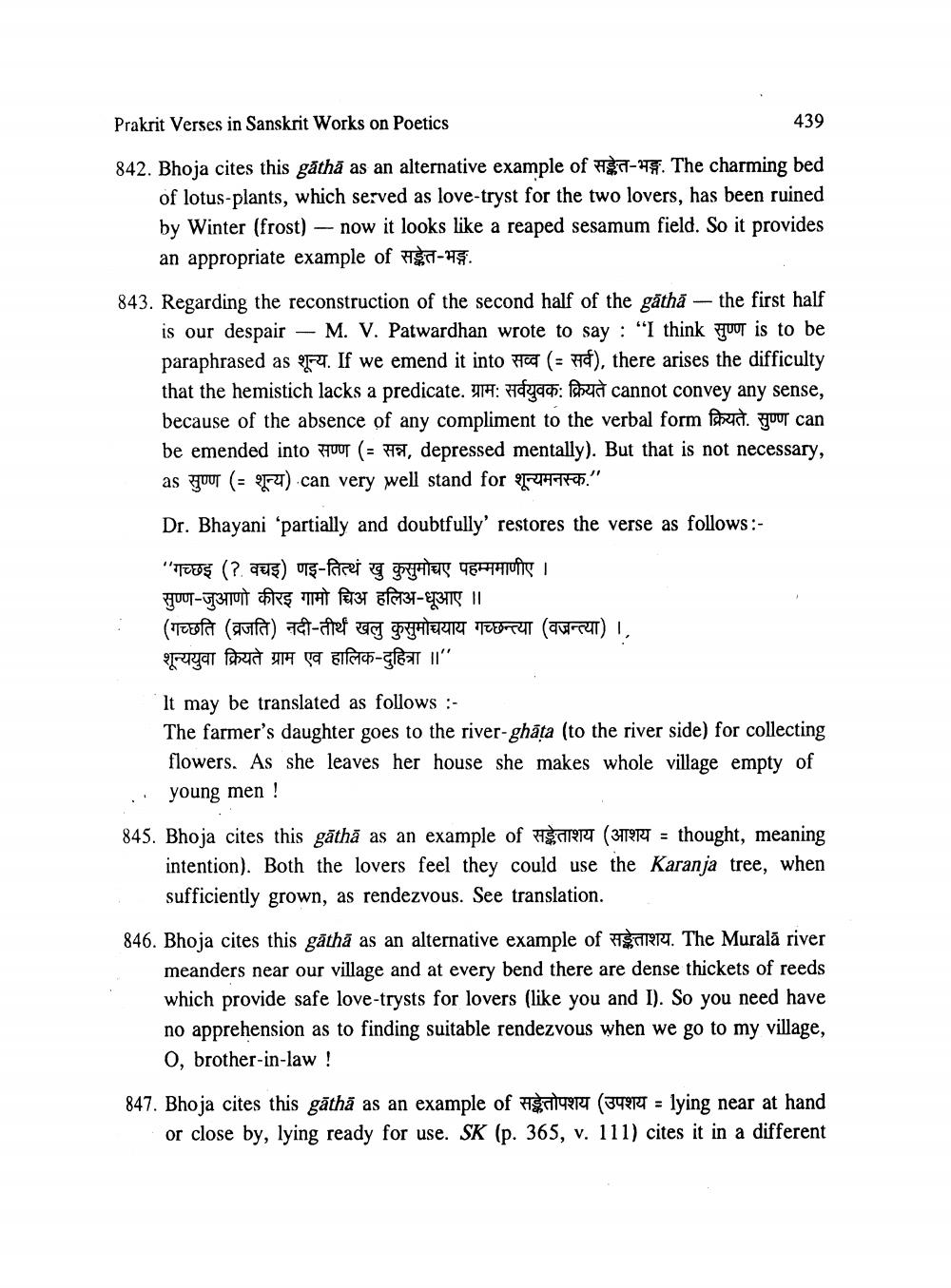________________
Prakrit Verses in Sanskrit Works on Poetics
439
842. Bhoja cites this găthā as an alternative example of -H. The charming bed
of lotus-plants, which served as love-tryst for the two lovers, has been ruined by Winter (frost) -- now it looks like a reaped sesamum field. So it provides an appropriate example of $-5.
843. Regarding the reconstruction of the second half of the gătha - the first half
is our despair – M. V. Patwardhan wrote to say : “I think your is to be paraphrased as शून्य. If we emend it into सव्व (= सर्व), there arises the difficulty that the hemistich lacks a predicate. ग्राम: सर्वयुवक: क्रियते cannot convey any sense, because of the absence of any compliment to the verbal form क्रियते. सुण्ण can be emended into shoot (= WT, depressed mentally). But that is not necessary, as your (= F2) can very well stand for 4 5 ."
Dr. Bhayani 'partially and doubtfully' restores the verse as follows:
"Tos (? Eg) utz-farei MET 46 HIUSI YOUT-E13101 BRS PET37 ERA131-873179 11 (Toofa (quila) 70-te un IHEUT TOUT (quru), riyar fud na E -PET II"
It may be translated as follows :The farmer's daughter goes to the river-ghāta (to the river side) for collecting
flowers. As she leaves her house she makes whole village empty of .. young men !
845. Bhoja cites this gāthā as an example of $ CITTY (377274 = thought, meaning
intention). Both the lovers feel they could use the Karanja tree, when sufficiently grown, as rendezvous. See translation.
846. Bhoja cites this găthā as an alternative example of art. The Murală river
meanders near our village and at every bend there are dense thickets of reeds which provide safe love-trysts for lovers (like you and I). So you need have no apprehension as to finding suitable rendezvous when we go to my village, O, brother-in-law !
847. Bhoja cites this gāthā as an example of Agri9974 (34974 = lying near at hand
or close by, lying ready for use. SK (p. 365, v. 111) cites it in a different




